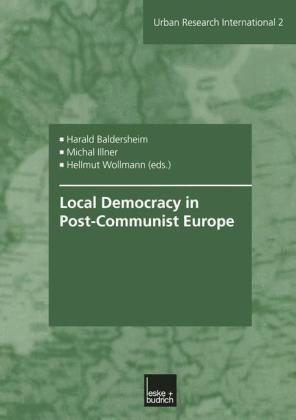Read more
This book is the first volume of aseries that aims at taking stock of the status of local democracy at the beginning of a new century. Modern local govern th me nt is largely a 19 century invention in response to processes of urbanisa tion and industrialisation. It became charged with the mundane tasks of pav ing and lighting streets, collecting refuse and providing clean water and sanitary sewerage, sometimes also acquiring a role in education and health. Anyone who has experienced a breakdown in such services knows how es sential they are to civilised life in urban society. Urban civilisation could simply not exist without working municipalities. The importance of munici pal functions ensures that the control over the municipality becomes a vital political issue. In most countries, democratisation of local government pre ceded and was an important step towards a fuH national democracy. Munici palities offered potential for the realisation of democratic citizenship at a comprehensible level of government and also became training grounds for participation in democracy on a larger scale. As institutions of the industrial era, local governments may not necessarily be able to respond adequately to the needs and aspirations of citizens of a post-industrial and global age. There are signs that citizens in a number of countries are loosing patience with local government. However, many municipalities also seek to open up new chan nels of participation for and communication with citizens.
List of contents
Aus dem Inhalt:
Local government reform in post-communist Europe - Making local democracy work: What were the challenges? - Values of local democracy as seen by mayors in East-Central Europe - Representational roles in local politics - Community challenges in post-communist towns - Optimal size for local democracy - The international contacts of municipalities - Trends in local government in the Visegrad countries - Local government development in the Baltic countries - Institution building of local government in Russia - Local reforms in Croatia and Slovenia - Decentralization: Lessons for reformers
About the author
Prof. em. Dr. Hellmut Wollmann war Hochschullehrer für Verwaltungswissenschaft an der Humboldt-Universität zu Berlin und ist Gesellschafter des Instituts für Stadtforschung und Strukturpolitik GmbH (IfS), Berlin.

